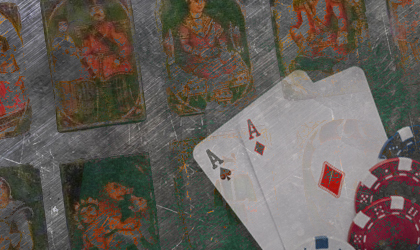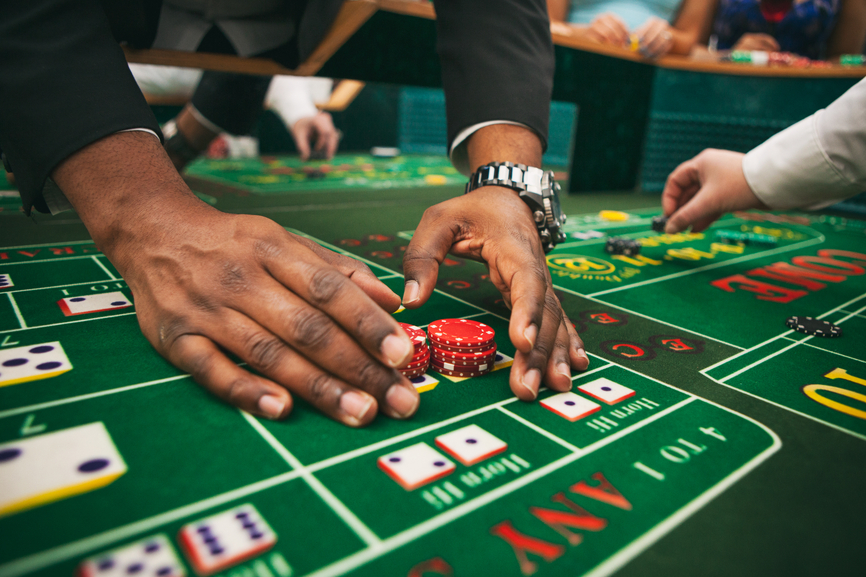How Was Gambling Originated

The Michigan Problem Gambling Helpline, 1-800-270-7117, is open for crisis intervention and referral to treatment – even during the COVID-19 crisis. Trained and experienced counselors are available 24 hours a day, seven days a week by phone or virtually to provide immediate help to address issues related to gambling disorder, including. American gaming laws are heavily influenced by the history of gambling itself. Games of chance first came to the American colonies with the first settlers. Attitudes on gambling varied greatly from community to community, but there were no large-scale restrictions on the practice at the time. A Brief History of Gambling There‘s a lot of evidence that gambling games existed in ancient times. From tiles found in China dating from 2300 BC and ivory dice found in Egypt from 1500 BC to gambling paraphernalia belonging to Bronze Age Greek soldiers, it’s clear that gambling is as old as civilization itself. The origin of gambling can be traced back to the Greek mythology in the division of the Universe; Zeus, Hades, and Poseidon did this by playing “Throw the dice”. Particularly, the use of dice can be dated back to around 40,000 years and dice games have been in existence since then. The earliest gambling houses which could reasonably be compared to casinos started to appear in the early 17th century in Italy. For example, in 1638, the Ridotto was established in Venice to provide a controlled gambling environment amidst the chaos of the annual carnival season.

This year, online gambling is expected to generate $50.65 billion dollars and jump to $56.05 billion in 2018. That’s a lot of money. Just for comparison's sake, Disney generated $52.47 billion last year.
Last week’s Super Bowl LI was expected to top the amount wagered on last year’s game between Carolina and Denver, with one bettor putting $1.1 million on the Falcons to win -- imagine the emotional roller coaster ride that individual experienced during the game.
The history of online gambling is very interesting, full of twists and turns. Take a look at the infographic below, which highlights this billion-dollar industry from its beginning to its current state.
Gambling is one of humankind’s oldest activities. Dice in particular have drawn attention from scholars, and a recent study of dice reveals that truly balanced dice did not really exist until the Renaissance. How pre-Renaissance people viewed their games’ fairness is difficult to say, but dice themselves have a long and fascinating history.
In the pre-colonial Americas, dice were typically just two-sided, painted on each side. According to archaeologists Warren DeBoer and Barbara Voorhies, native people throughout North America and Mesoamerica constructed dice of a wide variety of materials, such as fruit pits, shells, or teeth, or even split reeds or sticks. The typical die was curved on one side and flatter on the other. Six-sided dice came into use later and may have been introduced by Europeans.
Archaeologist H.S. Darlington believed that many American dice games had origins in sacred Aztec rituals. As part of the process of correcting their calendar for things like leap years, priests engaged in a “game of chance” to see if they could summon fire in the body of a sacrificial victim. The sticks used to tally the weeks of the calendar were bundled up and tossed as part of the ritual. Unsurprisingly, the priests rigged the game by making sure the fire would start. The sun symbolism and sticks found in many precolonial American dice games suggest the games may have begun with this ritual.
How Was Gambling Originated Created
Given the uneven shapes of many early dice, it is unclear whether or not the games were truly games of chance. Therefore, according to DeBoer, dice playing in the Americas involved not just luck, but a considerable degree of skill to achieve a desirable toss. Some gamblers tried a different tactic; cheating was apparently rampant in some native societies.
Across the Atlantic, Romans in the fort of Richborough, in the UK, apparently did view dice as controlled by chance, and took steps to ensure a fair outcome. To this end, some ancient Romans employed a device called a dice tower. About 7.5 inches tall, made of bone, and inscribed with elaborate designs, the dice tower was a structure enclosing a series of ramps. Dating from the 4th century C.E., the dice were tossed in to the top of the tower. Passage down the ramps was supposed to make the roll fair. Such towers appear in illustrations and mosaics across the Roman world, so they must have been in wide use. But nobody knows if they worked as intended.
Weekly Digest
How Was Gambling Originated Illegal
The exact symbolism and fairness of the games may have varied, but high stakes were common. European colonists noted games of chance with large amounts of trade goods, food, housing, or even people, as the pot. Mayans used precious stones or feathers as wagers. Games were raucous affairs. The racket surrounding one such game had a very descriptive word in the Algonquin language, that subsequently entered English: hubbub.